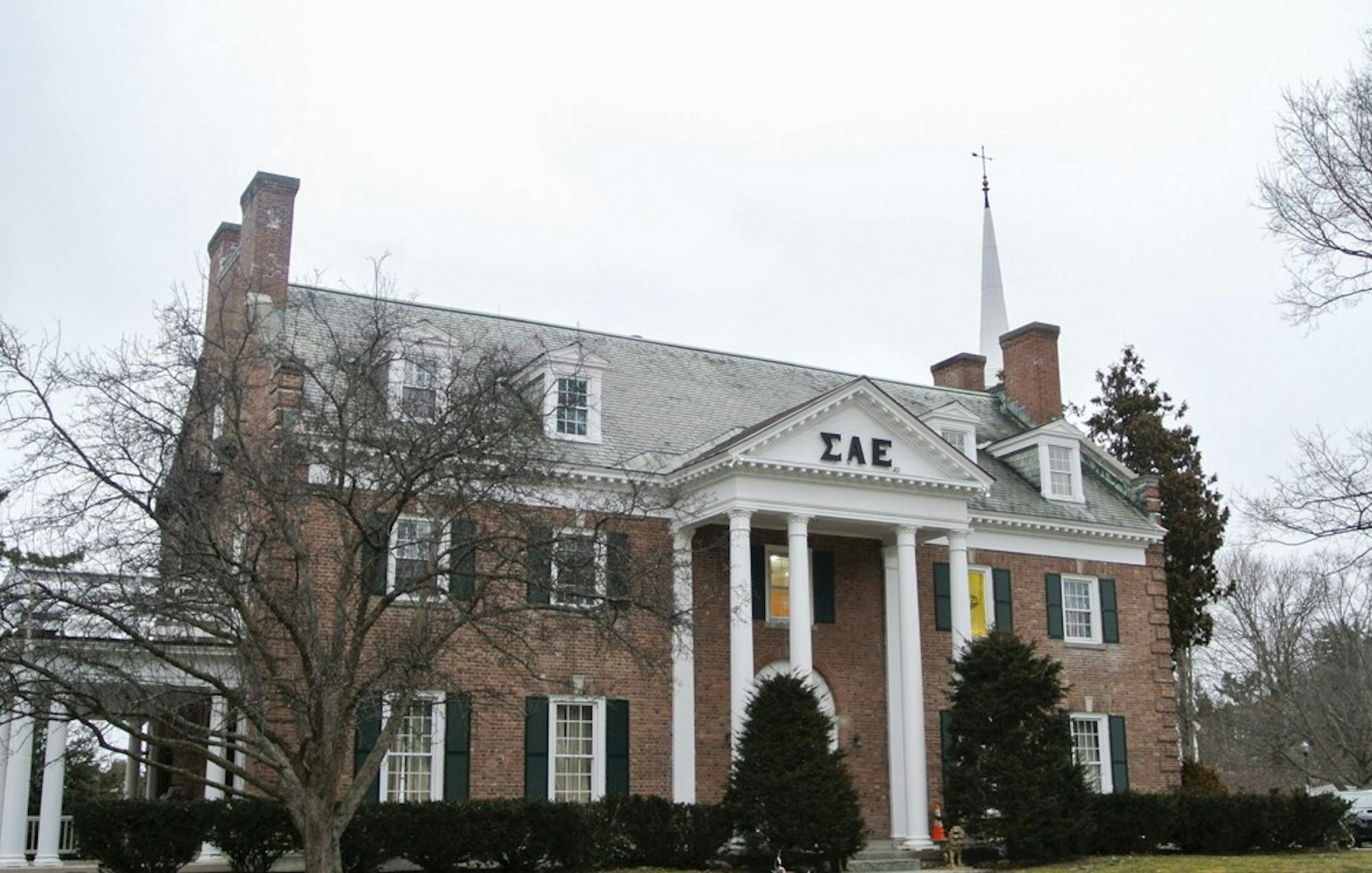Members of the Hanover Zoning Board of Adjustment postponed voting on proposed changes to the zoning laws governing student residences at Tuesday’s town meeting. The proposed changes, which could affect the derecognized Sigma Alpha Epsilon and Alpha Delta fraternities, would require student residences, such as fraternities, to be recognized and operated in compliance with the rules of the College. As it stands now, the ordinance states that student residences must be “operated in conjunction with another institutional use,” not the College specifically. The zoning board will reevaluate the proposal on March 7.
If the changes were to go into effect, fraternities that are currently zoned as student residences could lose this status if they were to be derecognized by the College. Under current College policy, students are already prohibited from living in unrecognized Greek houses, though this is not explicitly prohibited under zoning laws.
Last February, the College derecognized the Dartmouth SAE chapter, following suspension from their national organization for violation of hazing policies. Following their derecognition, SAE filed an appeal with the town to continue to be considered a student residence, arguing that they should be grandfathered in under previous zoning ordinances. The zoning board granted their appeal at the time, as the College failed to present any evidence against SAE’s claims. However, the College later requested a rehearing where it disputed SAE’s claims. As a result, the zoning board reversed their decision and SAE lost their status as a student residence.
The organization is currently appealing the decision in court. As part of their appeal, SAE has attempted to claim that the organization itself could serve as an “institution,” thus granting SAE student residence status. If the proposed changes to the zoning laws were to pass, SAE would not be able to make this argument, as student residences would have to be affiliated specifically with the College.
Their use would only be permitted within the institutional district, which has been specifically zoned for use by institutions such as the College and local high schools.
At the meeting, director of planning, zoning and codes Robert Houseman said the proposed changes were prompted by a request for clarification by the zoning board.
According to the Valley News, planning board chairwoman Judith Esmay said that the “institution” referred to in the original law’s text is Dartmouth College, and that the town wants to clarify this in the ordinance. In the same article, Hanover town manager Julia Griffin said that it would make sense for the zoning board to conclude that student residences, regardless of whether they are on Dartmouth property, should be linked to the College specifically.
During the meeting, Jeremy Katz ’95, trustee of the New Hampshire Alpha SAE Trust, disagreed with the notion that Dartmouth College was the institution that was being referenced to in the original ordinance, stating that there was no factual evidence to back that claim.
Addressing the amendments, Katz went on to enumerate ways the changes would violate principles set forth by the town’s Master Plan adopted in 2003. He also suggested legal challenges that come with adopting the changes, saying that they would grant the College too much power to impose restrictions on landowners, restrictions that the town of Hanover itself cannot currently impose. Finally, he indicated that an unintended consequence of the amendments could be students’ need to find alternate housing that traverses further away from campus proximity and deeper into residential or rural areas of Hanover, affecting current landowners.
“These landowners have interests as well, and a lot of their interest revolves around not having the next student flophouse, underground fraternity, secret society, team hangout or meeting house crop up next to where they are raising their young children or visiting their elderly parents,” he said during the meeting.
The question of student housing was mentioned in another context during the meeting by alumni adviser and director of Theta Delta Chi fraternity Geoff Colla ’04, who opposed giving Dartmouth a “monopoly” over student housing by according it power to recognize or not recognize certain entities. Colla said that the changes would prevent his organization from acting as they have been “for over 100 years” and affect future rent streams.
“We, as an organization, feel like this is a very unfair infringement on our economic rights as landowners in the town,” he said during the meeting.
In addition, he said that the fundamental problem with the ordinance is that it allows a “private party to determine for another private party what they can or cannot do on their property.”
Similarly, Joseph Asch ’79 said during the meeting the amendment gave Dartmouth “unfettered power” over other entities in the institutional district, and that Dartmouth “covets a number of properties on frat row,” which is a conflict of interest in this matter. Asch runs the website Dartblog, which comments on various aspects of the College.
Colla believes that this issue should ultimately be decided between the College and the fraternities. The fraternities are currently taking legal measures to try and maintain their zoning statuses, allowing members to continue living in their houses despite lacking College recognition.
“This is a fight that the town should not be taking,” he said during the meeting. “The town should be letting Dartmouth and fraternities fight this fight, and it’s costing taxpayers and it’s wasting all of our time.”
Correction Appended (February 9, 2017):
A previous version of this article incorrectly stated that the zoning board will vote on March 7, when in fact they will discuss the proposal again on March 7, which could lead to a vote at a later date.
A previous version of this article also misquoted Joseph Asch '79 as saying Dartmouth "covets properties on frat row." The quote should have read that Dartmouth "covets a number of properties on frat row."




